Destinations
Scale the Peaks of Sierra Maestra
Sierra Maestra mountainscape
Photo: Shutterstock
Journey through hidden trails and relish wildlife in the Sierra Maestra mountains of Cuba
Share
No other region on the island of Cuba harbors more geographical, historical, and diverse biological significance than the impressive mountainous peaks of Sierra Maestra. An environmental dream to explore.
From the shores of Cape Cruz in Granma and through Santiago de Cuba to Guantanamo, these intimidating mountains in Cuba stand testament to its magnificence. Descend along tropical trails full of exuberant flora and endemic animal species for an expedition that will put your exploratory skills to the test.
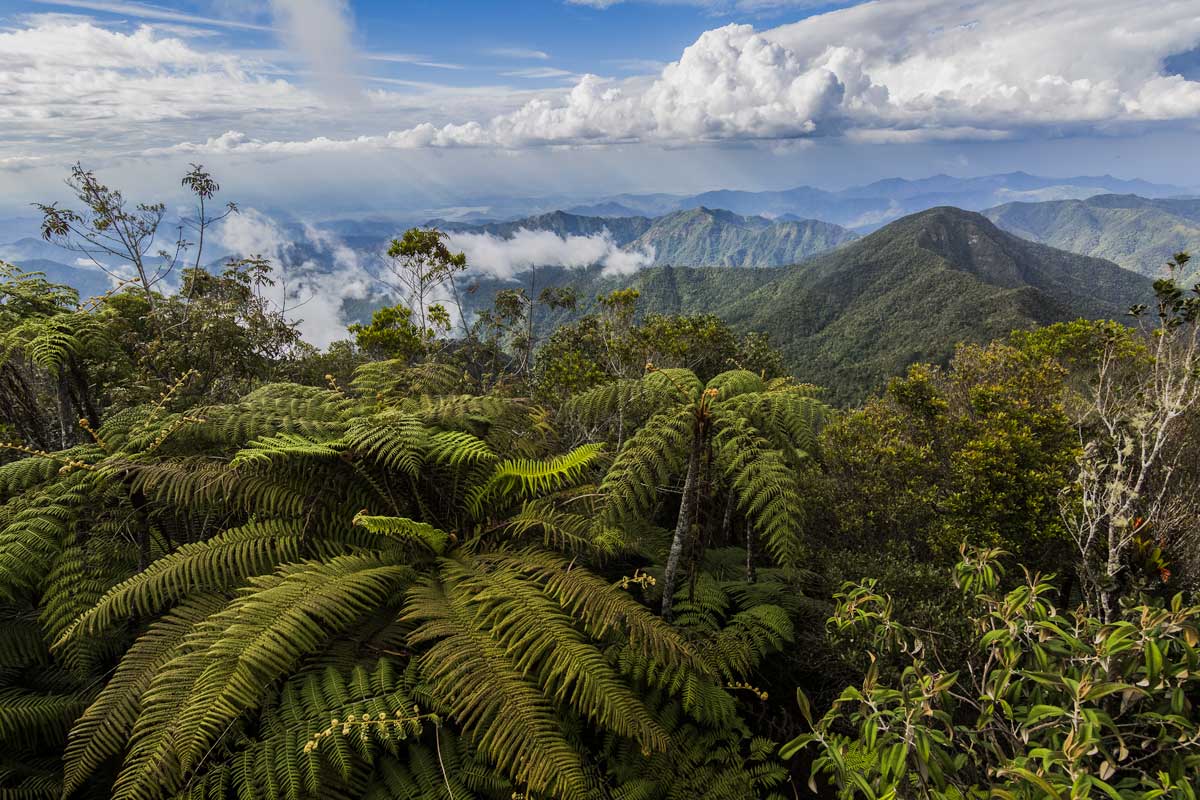
Mountain landscape in Sierra Maestra
Photo: Shutterstock
Naturally Rich
From every angle and vantage point in the region, vigorous green foliage covers the landscape as far as the eye can see - forming a 240 km barrier of natural fortitude on the island's southern Caribbean coast.
Within the many inter-mountainous valleys where water basins flow, tall Ebony, Palms, Mahogany, and Cedar forests provide shelter for the abundant thick mosses and ferns covering the jungle floor. The Sierra's wet-humid climate allows for a rich and fertile soil that's perfect for the cultivation of Cocoa and coffee beans - of which Sierra Maestra makes up 80% of the national production in Cuba. Other prominent regions for cultivation include Pinar del Rio and Sierra Escambray.
The nutrient-abundant soil not only produces quality goods, but also contains semi-precious and essential metals like silver, copper, and iron. Further inland, precious Crema del Valle marble, and asphalt are also quarried for export.
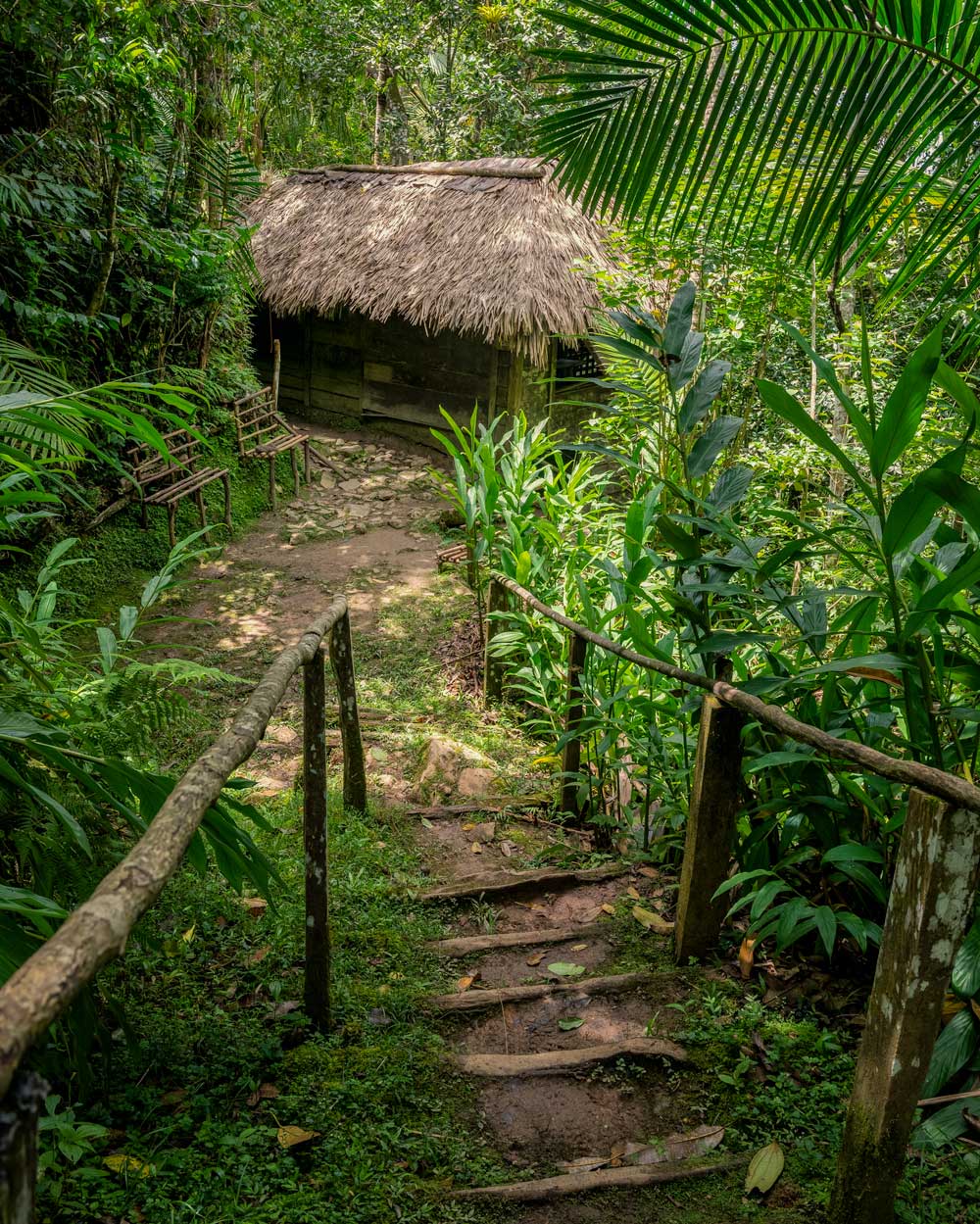
Ché Guevara's secret Comandancia La Plata base
Photo: Shutterstock
A Historic Game Changer for the Cuban Revolution
On the historic shores of Playa Las Coloradas, rebel forces made landfall in the famous Granma Yacht for their first assault on Batista's army in 1956.
During the height of the Cuban Revolution, between 1957 - 1959, Sierra Maestra's mountainous landscape in the region of La Plata provided the Cuban rebel forces - led by Fidel Castro and Ernesto Ché Guevara - with the necessary cover and leverage in the battle for Cuba.
Here they would establish their official base, the Comandancia de La Plata, where Ché Guevara personally trained young recruits and deployed them to carry out special missions. A guerilla radio station called "Radio Rebelde" was also set up to keep infantry informed and entertained, and it can still be visited today as it syndicates.
Look further into The Life and Times of Ché Guevara in Cuba for a deeper look at his footsteps during the Cuban Revolution.
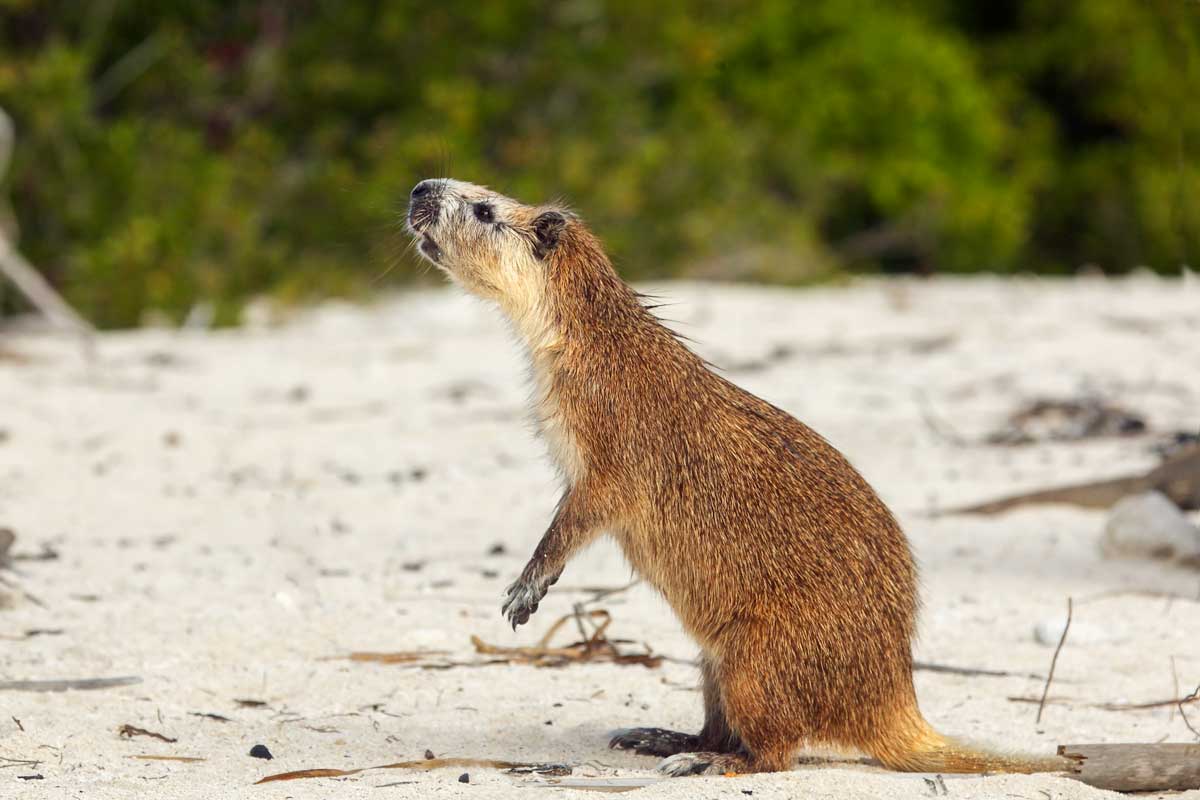
Desmarest's hutia in Cuba
Photo: Shutterstock
Wildlife in Cuba at its Best
Birds
With a large number of protected areas and reserves, there are over 80 species of birds in Sierra Maestra, with ten on the endangered list. Among the most notable, the Tocororo (Cuban Trogon) is known as Cuba's national bird for its red, white, and blue colors. In addition, species like the Zunzuncito (Bee Hummingbird) astonish with their minuscule size of only 6 centimeters in length and weighing 1.9 grams, making them the smallest in the world. Another bright figure flying through the forest branches is the yellow-necked Semillero Canoro (Cuban Grassquit).
Learn more with our article on The Amazing Birds of Cuba for curious ornithologists.
Mammals
As with many Caribbean nations, large endemic mammals are scarce, leaving smaller furry creatures like the pre-historic Cuban Solenodon to inhabit the land. Often spotted deep within the jungle close to river banks are larger Desmarest's Hutia, a rodent-like species also found in Haiti and the Dominican Republic. The eccentric Butterfly Bat can also be heard squeaking in the air as a sign of diverse wildlife in Cuba.
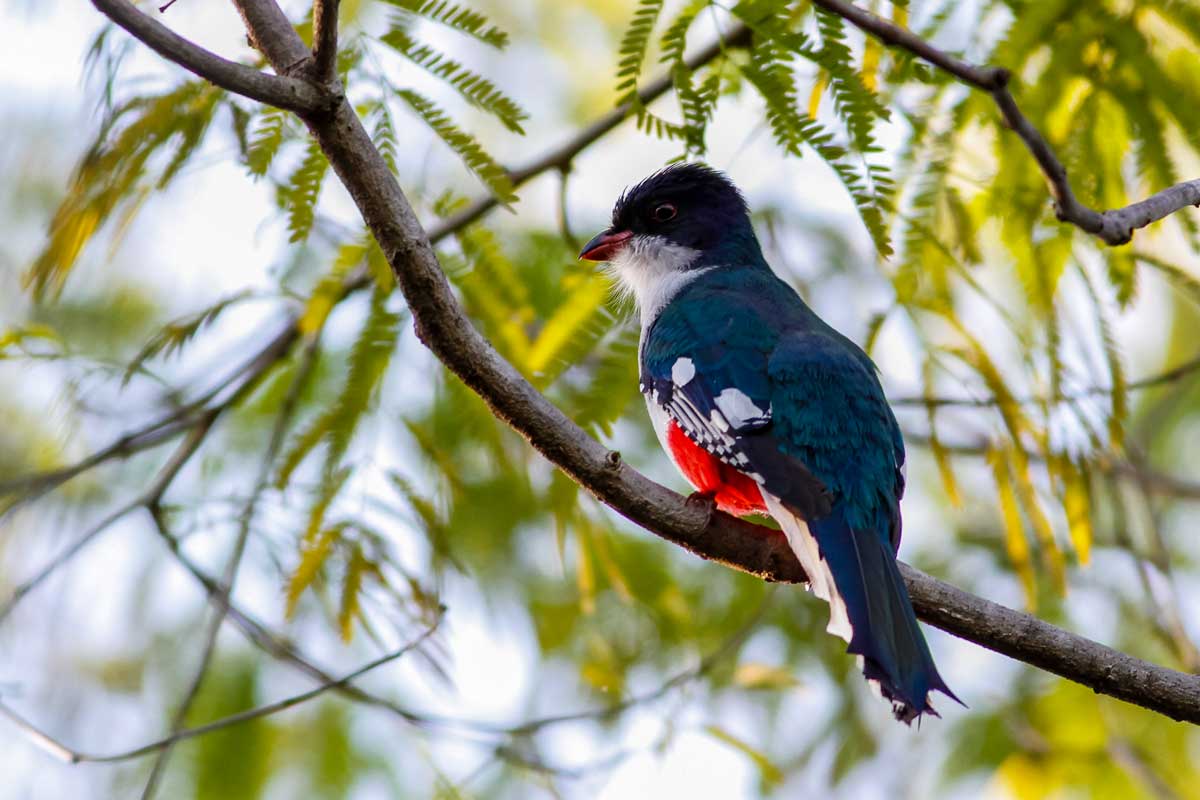
A Cuban Trogon perched on a branch
Photo: Shutterstock
Wildlife in Cuba at its Best
Reptiles and Amphibians
As you might expect from a rainforest environment, the mountains in Cuba have 55 species of reptiles and amphibians that are abundantly present - 9 of which are autochthonous.
The largest reptiles to watch as you hike through the lowland forests are Cuban Crocodiles and the slithery Majá de Santa Maria (Cuban Boas). The highly endangered Cuban Rock Iguanas roam freely in the protected areas, but for an adorable encounter, look closely for the Cuban Robber frog - one of the smallest frogs in the world, about the size of a housefly.
Oceanic life
In the coastal waters of Santiago de Cuba and the Granma province, Caribbean coral reefs form a haven for crustaceans like lobster, crabfish, and conch fish. A seafood lover's paradise.
Swimming a bit further into the sea, West Indian Manatees are seen grazing on seagrass and floating effortlessly in their environment. Going deeper from the coast, Blue Marlins attract professional and amateur fishermen for a catch-and-release fishing competition, as Blue Marlins are protected fish.
Thinking about reeling one in? See the Best Cuban Destinations for Fishing at any skill level.
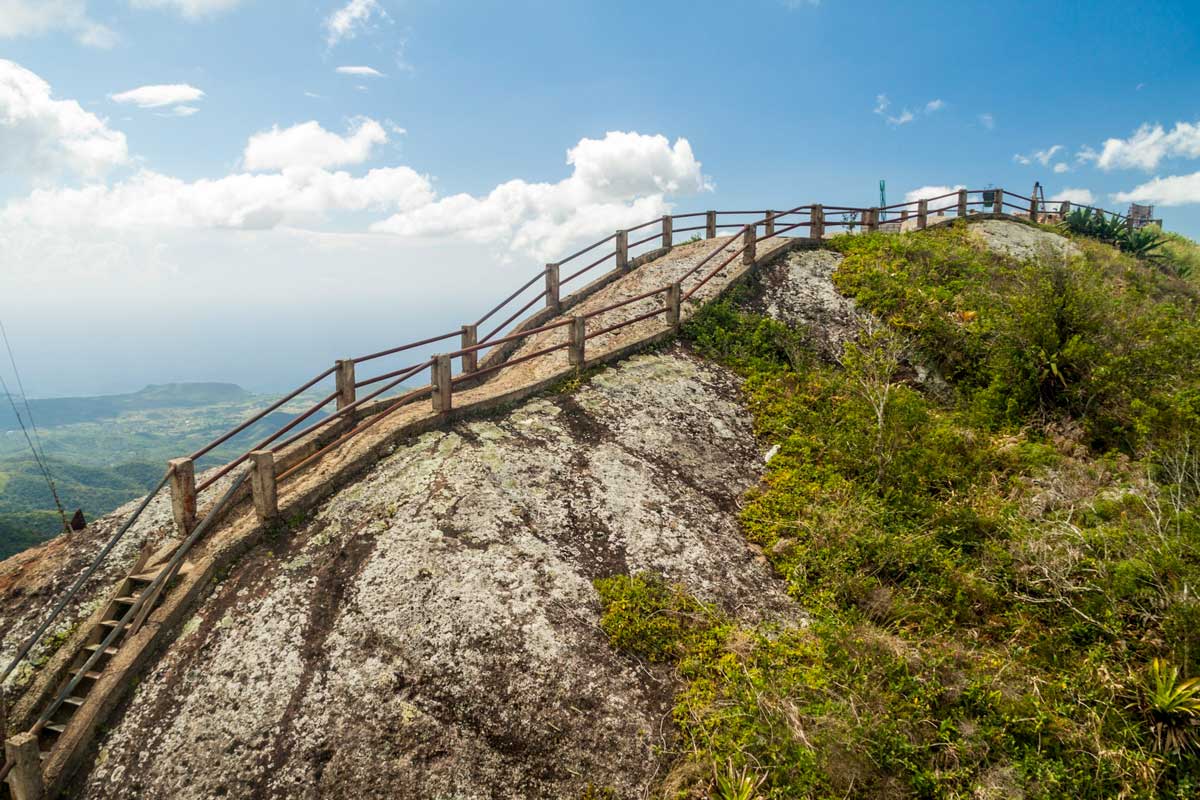
La Gran Piedra in Sierra Maestra
Photo: Shutterstock
Things to do in Sierra Maestra
Sierra Maestra is definitely an adventure-seeker's paradise with a dash of challenge and a twist of excitement.
Swim under Hidden Waterfalls
Also located in the Santiago de Cuba region are the Sierra's two most visited waterfalls and river basins by locals and tourists alike.
El Saltón
El Saltón waterfall is located in the municipality of Tercer Frente, 30 meters in height, and drops into three beautiful natural pools for a cool swim after a long hike.
Cascada de Juan Gonzalez
A lovely 7-meter-high waterfall near the Rio Nima-Nima river where several mountainous streams meet.
Take your trip even further and discover the Greatest Waterfalls in Cuba to visit this season.
Hike through Challenging trails
Pico Turquino
Ready to feel the burn? Sierra Maestra is home to the highest montane elevations on the island of Cuba, which includes Pico Cuba, Pico La Bayamesa, and the highest mountain in Cuba, Pico Real del Turquino, at 1,974 meters above sea level. Reaching Turquino is a 2 to 3-day adventure from the La Mula campsite for travelers with a standard deck of athleticism.
Gran Piedra
Gran Piedra, or Big Rock, is an awesome natural 70,000-ton boulder located in the far eastern Africana region of the Sierra at 1,225 meters high and is in the Guinness Book of World Records as the third largest rock in the world. Standing on this massive rock, you'll experience the best view of Santiago and Guantanamo.
Visit the Spectacular Beaches
Sierra Maestra is adorned with charming and dazzling beaches along its coast if you feel like taking a well-deserved rest from the arduous trek. So get your fins and goggles, or Mojito and a beach chair for a pleasant experience all around.
Playa Juraguá (Baconao Region in Santiago de Cuba)
Playa Marea del Portillo (Southeastern Guantanamo Province)
Playa Cayo Blanco (north coast of Varadero)
Playa Maguana (northern Baracoa in Guantanamo Province)
Also check our Top 5 Picks for the Best Beaches in Cuba for more of the Caribbean experience.
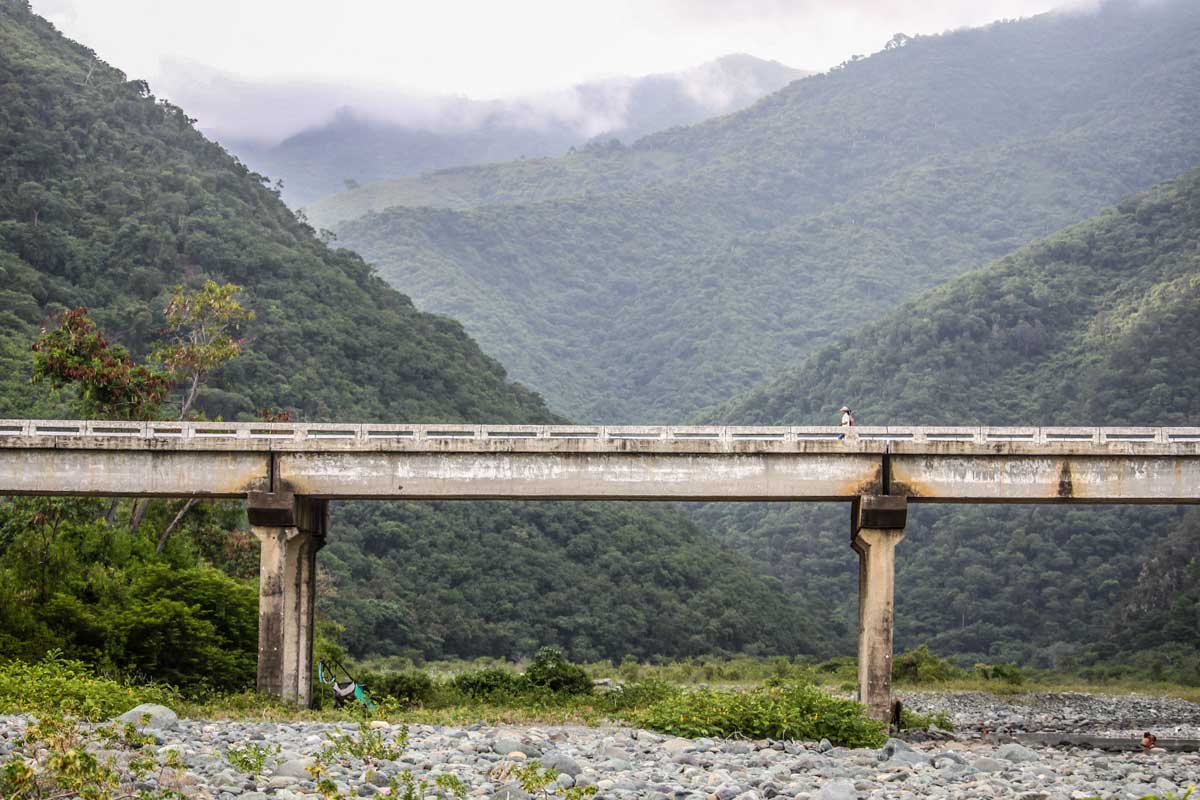
A bridge in the Sierra Maestra mountains
Photo: Shutterstock
Getting there
Thanks to the popularity of this destination, Santiago de Cuba has its own international airport, the Aeropuerto Internacional Antonio Maceo (SCU), and is now receiving flights from the U.S. From there, you'll travel to the town of Villa Santo Domingo, in Granma's capital city of Bayamo if you're looking to take a whole week tour through the entire region.
Written by Omar Guzman.
Published November 2023.
Find Sierra Maestra
External Links
Categories
Tags
Share
Find Sierra Maestra
External Links
Categories
Tags
Share
Five of the Best Beaches in Cuba
Looking for a quick getaway or an island escape? We’ve rounded up a list of the best beaches for you to kick your feet up, relax, and enjoy the best Cuba’s coasts have to offer!
Playa Ancón beach near Trinidad
Photo: Shutterstock
Explore Cuba's History & Heritage
The Cuban Cigar: Everything You’ll need to know
Learn about the curious and mysterious history of the Cuban
Visit the Sanctuary of San Lázaro
Visit the San Lázaro national pilgrimage site near Havana for
Visit the Museo de la Revolución, and Relive the Fight for Cuba
Havana’s Museo de la Revolución offers a thorough look at
Havana’s National Museum of Fine Arts
Your essential guide to one of Cuba’s most fascinating cultural
Step Back in Time at Finca Vigía – Hemingway’s Home in Cuba
Visit the Ernest Hemingway home in Cuba that attracts followers
Castillo del Morro: A Historical Fortress in Havana
Learn about the History of Cuba in the bay of
Subscribe to our newsletter
Get more travel inspiration, tips and exclusive offers sent straight to your inbox

 Subscribe to our newsletter for the best monthly stories and insider guides about Cuba!
Subscribe to our newsletter for the best monthly stories and insider guides about Cuba!